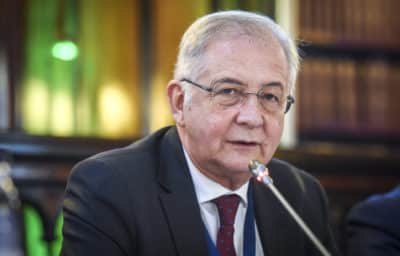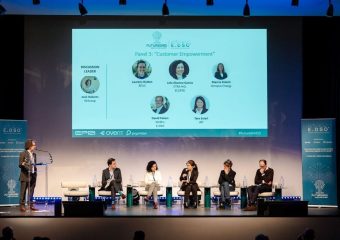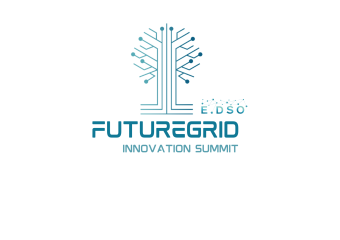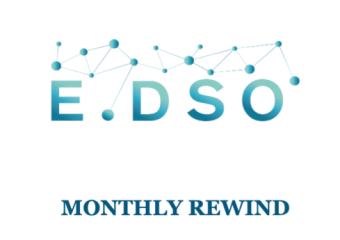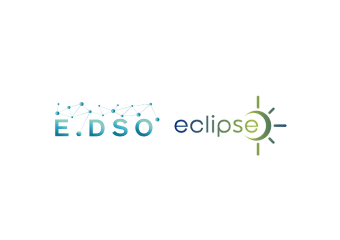EDGING INTO THE FUTURE OF NETWORKS – Livo Gallo on the launch of E.DSO’s 1st Stakeholders and Innovation Council
The energy transition, driven in Europe by the EU 2050 energy decarbonisation target, is shaping the future electricity systems: the traditional meaning of “demand” and “supply” is about to be overcome and the distribution grid is and will be the crossroad for flexible power supply options from decentralised sources of generation, storage and demand response.
DSOs will play a pivotal role among customers who actively participate in the energy market, capacity and ancillary services markets, embedded generators, and TSOs.
On one side, the addition of a large amount of generation on the distribution network will present challenges in network planning and operation, on the other side, the available flexibilities from this generation and new technologies such as storage facilities, e-mobility and demand response will provide the DSOs with more options for network management and planning.
Network operators could manage constraints in real-time to either defer or avoid costly grid reinforcement or expansion and to unlock other system-wide benefits, including reduced outages, improved response times, operational cost savings and optimising balancing and congestion management.
New technologies that are currently being deployed will result in a paradigm change in the way distribution networks are planned and operated. Demand will be driven by different consumption mode and distribution grids will carry two way flows. This is both a challenge and an opportunity for utilities while at the same time offering the opportunity of new business models with flexible, customer centric relations. DSOs will continue to be responsible for the delivery of high quality electricity and their present role as neutral market enablers will expand.
All this perspective will contribute to transform the role of DSOs in a growing proactive way, in four dimensions:
1) FUTURABILITY
Different scenarios with new system paradigms in electrification, technology and sustainable resources, local energy communities and culture preference will require a new mindset in designing futurable energy systems having as stakeholder the society and legislative framework
2) GRID EDGE TRANSFORMATION
Increased penetration of distributed energy resources, pervasive digitalisation in power networks and society, and electrification are shaping a transformation at the grid edge, which represents a valuable opportunity having as stakeholder the innovation and technological development.
3) INNOVATIVE RESILIENCE
Market disruptive dynamics, cybersecurity, large scale social events, climate change and natural phenomena will affect the energy sector and will challenge DSO operation, determining also new business models. This will bring the need for disruptive solutions to guarantee higher degree of resilience, adaptation and flexibility of power grids.
4) EVOLUTIONARY CUSTOMERS AND DSOs
Customers’ behavior is evolving driven by new technologies, market, societal and environmental stimulus, more flexibility and affordability. The focus is on new customers’ expectations and the impact on DSO models’ evolution.
On November 30th, E.DSO has launched its Stakeholders and Innovation Council, to support the design of the evolution of DSO models that will create value both for utilities and communities and develop DSOs strategies in the next months.
The Council convenes the most influential leaders from academia, international organisations and business to develop new insights and perspectives on evolving DSO role. It analyses its transformation besides the evolution of ecosystem, technology, business models and customers, with the general ambition of:
- Designing the evolution of DSO modelsto create value for citizens and society, industry, customers, and stakeholders
- Providing advice and inspirationto E.DSO
- Bringing views outside-in, sharing new visions on industry and technology in transition
- Reflecting onpossible and forward looking DSOs and E.DSO strategies
____________________________________
The Council is chaired by Livio Gallo, Head of Enel Global Infrastructure and Networks & Vice-Chair of E.DSO.
Members of the Council are:
Ronnie Belmans: Chairman of the board of directors of ELIA. CEO of Energyville, joint venture research centre for sustainable energy supply of cities with VITO, IMEC and KULeuven. Executive Director of Global Smart Grid Federation.
Martin Hans Henning: Chairman of the Fraunhofer Energy Alliance, Director of the Fraunhofer In-stitute for Solar Energy Systems ISE in Freiburg, Germany and Professor of “Solar Energy Systems” at the Institute of Sustainable Systems Engineering in the Faculty of Engineering, University of Freiburg.
Jorge Vasconcelos: Chairman of NEWES, New Energy Solutions and first chairman of the Portuguese Energy Regulatory Authority, ERSE. Founder and first chairman of the Council of European Energy Regulators, was founder and member of the Executive Committee of the Florence School of Regulation.
Dan Delurey: Founder of the US Association for Demand Response & Smart Grid. Accredited Dele-gation Head for the COP Series of UN Meetings on Climate Change. Helped develop much of the US policy regarding demand response and smart grid. Co‐author of the blog “Update on DR, DER, and grid Developments”.
Philip Lewis: Expert in customer centric behavioral, competitive and smart issues. Former member of the WEF Global Agenda Council on the Future of Electricity. Co‐founder and board member of the Smart Energy Demand Coalition. Named among top 40 most influential people in Smart Grid 2014. Author of the World Energy Retail Market Rankings.
Guido Bortoni: Former president of ARERA, the Italian Regulatory Authority for gas, electricity, wa-ter and wastes, Guido Bortoni was also Member of the Board of Regulators of the Agency for the Cooperation of Energy Regulators (ACER) since 2015.
Patrice Geoffron: Professor of Economics at the Université Paris Dauphine. Director of the Centre of Geopolitics of Energy and Raw Materials (CGEMP). His main area of research is related to the dynamics of network industries with recent developments centred on power smart grids/
Joisa Saraiva: Professor of economics, Director of the Center for Regulation and Infrastructure, Fundação Getulio Vargas. Formerly: Commissioner for the National Electricity Regulator in Brazil, ANEEL. Member of the Global Future Council on Energy of the World.
EDSO Representatives: Christian Buchel (Enedis), Livio Gallo (Enel Global Infrastructure and Net-works), Armando Martinez (Iberdrola Distribucion), Joachim Schneider (innogy), Franz Strempfl (Energienetze Steiermark), João Torres (EDP Distribuição), Jan Peters (Enexis), Roberto Zangrandi (EDSO for Smart Grids).

